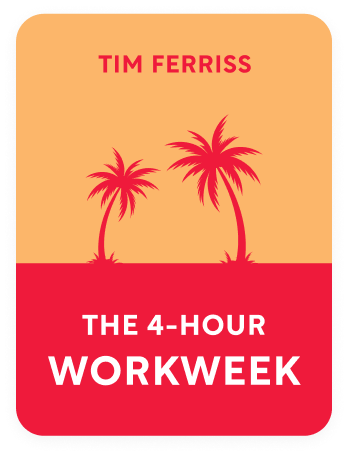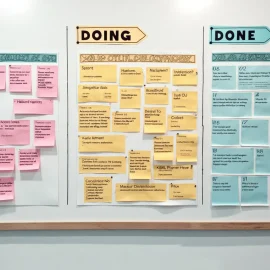

This article is an excerpt from the Shortform book guide to "The 4-Hour Workweek" by Tim Ferriss. Shortform has the world's best summaries and analyses of books you should be reading.
Like this article? Sign up for a free trial here .
Do you want to know how to make decisions faster? How can reducing deliberation help you have less regret?
Learning how to make decisions faster may feel like you’re going against your rational side. But learning to reduce deliberation can help you spend your time more wisely and have fewer regrets.
Keep reading to find out how to make decisions faster.
How to Make Decisions Faster: Reduce Deliberation
Making decisions is exhausting because it takes time, energy, and attention. Note that it’s not the number of decisions we make that’s exhausting, it’s the number of resources we use deliberating. For example, when you’re buying something, the more options you have are directly correlated with the amount of buyer’s regret you’ll have, and with how happy you’ll be with your choice.
There are six ways to learn how to make decisions faster and reduce deliberation:
1. Automate decisions by making rules. Treat yourself the same way you treat your coworkers and outsourcers—make rules regarding certain actions and follow them in every case so you don’t have to think.
- For example, immediately delete any email that has the subject “chain letter.”
2. Don’t look for problems you can’t immediately solve. If you’re not in a position to do something about a problem (for example, it’s Friday night and everyone has left work for the week), avoid learning about it. If you find out about it, it’ll bounce around in your brain until you can fix it, distracting you from relaxing.
3. Don’t procrastinate decisions. If you already know your decision but are procrastinating giving it because it might make someone uncomfortable, stop. Give it now.
- For example, if you don’t want to go for dinner with someone, say you’re pretty sure you’re otherwise occupied but if that changes, you’ll let them know.
4. Make non-critical decisions quickly. If a decision isn’t about something important, give yourself a time limit, option limit, or if it costs less than a certain amount, get someone else to choose such as your VA.
5. Continue routines unless deviating is fun. Only look for variation when it will increase your enjoyment, otherwise, stick with routine.
- For example, the author eats the same breakfast and lunch every day, but he chooses something different every day for dinner.
6. Stop complaining. You complain because you regret decisions you made in the past. Notice every time you complain to avoid engaging in negative emotions.

———End of Preview———
Like what you just read? Read the rest of the world's best book summary and analysis of Tim Ferriss's "The 4-Hour Workweek" at Shortform .
Here's what you'll find in our full The 4-Hour Workweek summary :
- The 4-step process to live a "retired" lifestyle now
- Find out if you're wasting the best years of your life working a 9-5
- How to create a business that makes you money without sucking up your time






